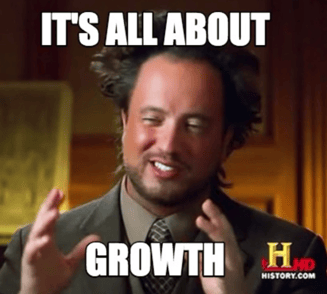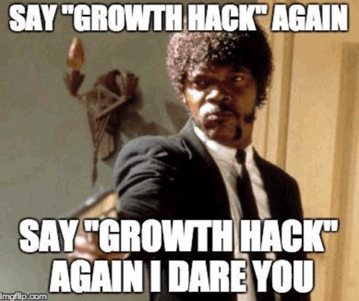Is Growth the New Product Management?
How growth roles are transforming product management. Understand what's the fuss all about and how to use it to your advantage.
5/23/20243 min read


Recently, I came across a LinkedIn post by Stephanie Leue with a very fierce and catchy headline: "Growth is eating product management for breakfast." This statement has sparked quite a discussion, mainly among product professionals, that made me think about the nature of the "growth" trend and issues with the perception of product roles.
The Changing Roles
Stephanie argues that Growth roles will replace Product Management in many companies over the next few years (or months).
She reasons that product management has become overly complex and diluted, focusing too much on being a feature factory and not enough on true product discovery and validation.
Common Goals but Different Perceptions
Even though the goals of Growth and Product Management might be the same, the perception of what product people do is different from what growth roles entail, as evidenced by the reactions under Stephanie’s post.
It might be a fad, but to most (non-product) people, "growth just is the cool kid in town."
It seems fast,
unconventional,
and data-informed
— all traits that C-level business people love.
What Growth Roles Excel At
Stephanie highlights that growth professionals excel in hypothesis-driven development, breaking down large hypotheses into small, testable assumptions, and iterating quickly.
However, it’s not only growth people who can do this.
Many product managers and especially researchers (who often get an even worse reputation) are skilled at hypothesis-driven development.
It might depend on the organization. In one startup I worked at, the product team wasn't focused on hypotheses and testing assumptions; it was changing too much without clear direction and played too much of a feature factory role. But in another (slightly more successful ;)) startup, the product team was definitely doing the right thing, iterating quickly based on testing hypotheses, separate from design.
Growth as a Way of Working
So, Growth isn’t really a specific role. It’s a way of working that more people should learn in this fast-paced environment. Product, marketing, UX, research — all can adopt growth principles.
I believe Growth is just a trendy term right now, associated with positive business outcomes.
However, this raises questions about the sustainability and effectiveness of growth-focused strategies. A narrow focus on growth can lead to short-term thinking and neglect of other important aspects of product development, such as user experience and long-term viability (read more here).
So can everyone be focusing on growth as the main objective?
What does it mean for the business, actually?
Leveraging Growth perceptions in Your Role
Sometimes it's just about the perception - actually, most of the time it is (read this article about perception in business, your direct customers are business people working with you)
My background in somatic psychology brings to my mind the concept of conceptual metaphors of “up and down”, explaining why growth (up) is associated with positive terms [Azevedo et al. (2013). Good is up: A metaphor or a confound?].
That’s why you can and should take advantage of this trend and incorporate speaking of growth into your role.
Many product managers are already delivering what growth roles aim to achieve and more
Because growth should be a result of creating value for customers, not an end in itself (Ries, 2011 in Lean startup).
So mention it more frequently and take advantage of the fuss it creates.
However, don't overdo it — no one likes to hear the word "growth" without context in every presentation.
Now you'll be seeing people leveraging and signalling "growth" everywhere.
Sorry about that, but you can choose if you'd rather get annoyed or incorporate that in your professional branding,
after all, we're all branding projects nowadays.


The Reality of Product Management
There is some truth to this observation. Often, product teams are seen as the guardians of the product and user satisfaction because no one else truly cares about it.
As a result, Growth roles have emerged, expected to deliver results much more quickly.
But this reflects more about the external perception of what product people do rather than the actual reality of their work.
Stephanie claims that growth professionals are now the ones optimising product-market fit and user retention, suggesting that product management has failed at these tasks.
This statement stirred quite a discussion in the comments, primarily from irritated product managers who asserted that "growth" is just a label,
one that is appealing, especially in the economic uncertainty.
Those angsty product managers rightly asserted that all the objectives of growth are also the objectives of product people.


